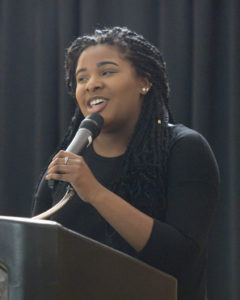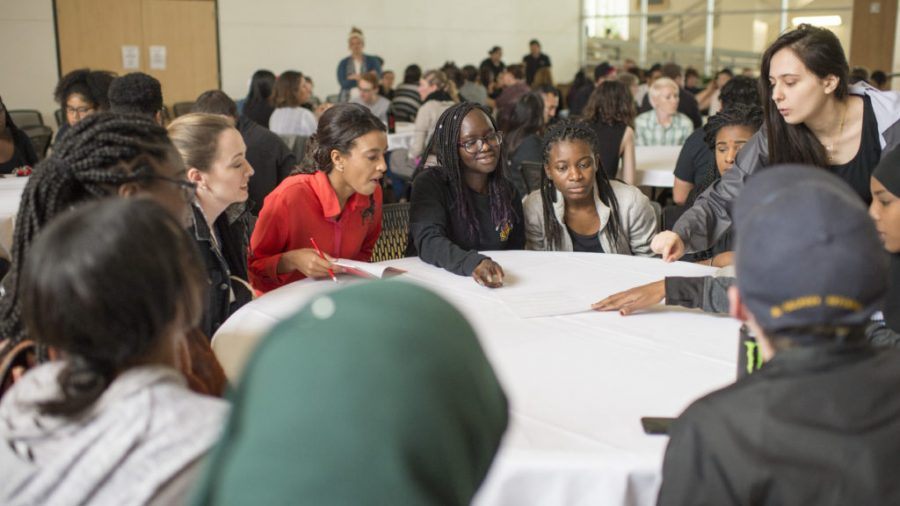Over 100 students stood with their arms linked outside of the Union at the University of Utah on Wednesday to show support for the Black Lives Matter movement.
Silently, students protested police brutality and what they feel is the systemic oppression of black individuals. Their arms were linked “to show solidarity,” explained Ray Taylor, a student, and participant in the demonstration. “We are standing with each other in unity.”
Most of those protesting wore black to draw attention to black victims of police violence, although there were some students in the ranks, who stumbled upon the demonstration by accident and decided to join wearing different colors.
“One thing that I’m really struck by is, it was just a small group of people that planned to stand here, and already a dozen or more people have come and joined,” said a protester who only identified themselves as Vivian. “I think that’s an impact people can identify with on campus, knowing there are a group of people that have a similar belief about something or are interested in having a type of dialogue that’s not present in classrooms. They can feel that support standing in line with each other.”
After the demonstration, students met inside the Union for a follow-up discussion. The group quickly filled eight tables that had been previously set up, while other students filed into the room and stood in the back, signifying that the protest had produced a bigger turnout than originally anticipated. Alexis Baker, president of the Black Student Union at the U and the first to speak, waited until extra chairs were set up for the rest of the students.

“I believe that events such as this are important for us to have on campus in order to address the racial climate,” Baker said. “We have made some strides as a university to address it, but I do realize that we still have a long way to go as a campus. I do see that the university is slowly waking up and is slowly making strides to be more inclusive of marginalized groups.”
Baker said black students at the U are often ignored by the institutions at the U.
“Being the president of the Black Student Union, I have the opportunity to listen to other black student’s experiences here at the U, and the things I have heard are, they don’t feel heard here at the university, they don’t feel welcome, and that they are just kind of here but not really here.”
She went on to tell the audience how they can change the campus climate to make it more inclusive.
“We need to continue to educate ourselves about marginalized groups and we need to continue to stand in solidarity with marginalized students outside of spaces like this and outside of demonstrations like this. We shouldn’t need a demonstration to let others know that we are there for them, to let others know that we support them, that we love them.”


